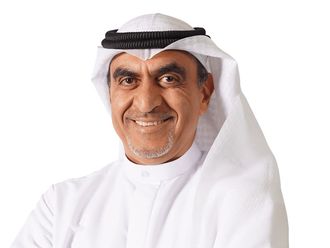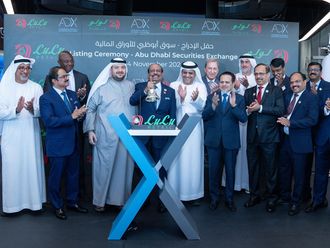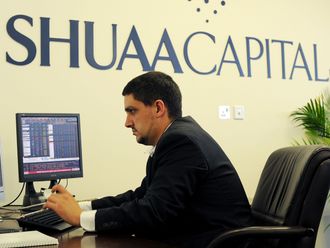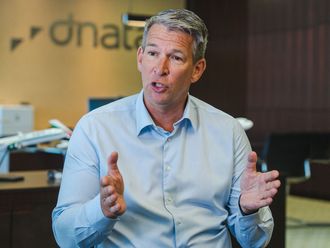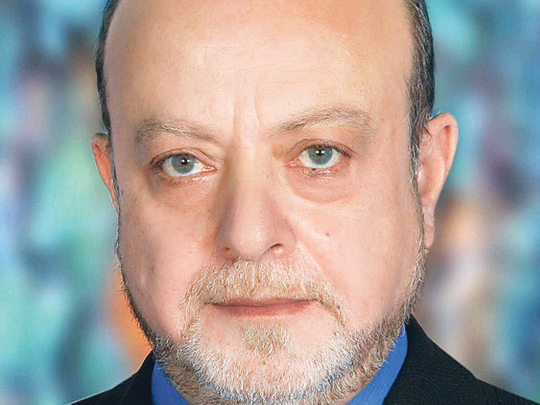
Dubai: With Islamic finance gaining ground globally, the need for international standards has gained importance. The Accounting and Auditing Organisation for Islamic Financial Institutions (AAOIFI) is in the forefront of these effort.
The Islamic international autonomous not-for-profit corporate body prepares accounting, auditing, governance, ethics and Sharia standards for Islamic financial institutions and the industry.
In a recent interview with Gulf News, Dr Mohammad Nedal Al Chaar, Secretary-General of the AAOIFI, talked of the AAOIFI's role in development of standards for the international Islamic finance industry.
Excerpts:
Gulf News: What are AAOIFI success stories, and what are its immediate challenges?
Dr Mohammad Nedal Al Chaar: AAOIFI has issued 83 standards in the areas of accounting, auditing, ethics, governance, and Sharia. The standards have been followed — either as part of regulatory requirement or basis of internal guidelines — by leading Islamic financial institutions. As a result, there has been a progressive degree of harmonisation of international Islamic finance practices.
Immediate challenges include the need for wider adoption of the standards. In this respect, AAOIFI will continue to work with central banks, regulatory authorities and Islamic financial institutions.
Has education been effective in promoting Islamic finance?
The industry has been quite successful in offering general Islamic finance training and development programmes for Islamic finance practitioners. Nevertheless, more needs to be done with regards to specialised Islamic finance programmes such as accounting, auditing, corporate financing, risk management, and treasury operations. This should involve incorporating Islamic finance subjects in high schools, universities and higher learning institutions.
What programmes does AAOIFI offer in this regard?
AAOIFI offers Certified Sharia Adviser and Auditor (CSAA) and Certified Islamic Professional Accountants (CIPA) professional development programmes that cover technical understanding and adoption of the standards. We also work with universities and institutions to incorporate Islamic finance subjects in their curriculum.
Is standardisation the need of the hour in Islamic finance?
Standardisation and harmonisation are perhaps more critical than contributing towards efficiency and growth. The standards give guidance to both Islamic financial institutions and their customers on the Sharia rules and principles.
In our point of view, the industry also needs to address some challenges including on portfolio management, liquidity management, and transparency on financial performance and operational practices.
What are the other challenges?
Islamic financial institutions must ensure that their investment and financing portfolio is balanced, especially taking into account the correlation between Islamic finance operations and real economic activities. Over-exposure to any specific sector of the economy can have negative impact on their financial performance should there be any adverse movement in the sector concerned.
There is also a need for effective liquidity management framework. For Islamic finance institutions, their internal liquidity management operations must be supported by an industry-wide and international Islamic money market that is active, liquid, deep, and most importantly, easy to access.
What about transparency?
The need for transparency — in terms of information on financial performance as well as on operational practices — is a huge challenge.
For Islamic financial institutions, the financial reporting system must be able to encapsulate the characteristics of Islamic finance practices that they carry out so that the financial information of an Islamic financial institution can be easily and accurately understood and compared with that of other institutions.
Transparent information on operational practices contributes towards protection of financial systems.
AAOIFI, through its effort on accounting, auditing, ethics, governance, and Sharia standards, has certainly contributed much towards enhancing transparency in the Islamic finance industry.
Has the message of Islamic finance to the non-Islamic financial industry been effective during the credit crisis?
The difficult environment for the finance industry in general has generated interest on the potential for Islamic finance. However, any opportunity must be seized on Islamic finance's own merits rather than being the case of Islamic finance "rising over ailing bodies". Promotion of Islamic finance during the credit crisis has not been totally effective perhaps because it has also been affected by the crisis.
We feel that the message that should be given to those who are not yet involved in Islamic finance, and also those who already are, is that while the Islamic finance industry's achievement so far has certainly been remarkable there remains a lot more to be done if it is to achieve its full global potential.
Therefore, those who are not yet involved in Islamic finance should now get involved especially to contribute towards building a robust well-structured Islamic finance system.
Do Islamic finance industry bodies need to coordinate better?
There has already been a degree of coordination and cooperation between Islamic finance industry development bodies. For example, AAOIFI's work on accounting, auditing, ethics, governance and Sharia standards complement other industry standards and efforts by other industry bodies. AAOIFI has also carried out efforts together with other industry bodies and multilateral organisations such as the World Bank and IMF in establishing Islamic finance regulatory framework in a number of jurisdictions.
There is a perception that AAOIFI's standards lack enforcement and monitoring.
The accounting standards have already been made mandatory and enforced — as part of national regulatory requirements — in the leading Islamic finance jurisdictions including Bahrain, Dubai International Financial Centre, Jordan, Qatar, Qatar Financial Centre, Sudan and Syria as well as Islamic Development Bank Group as a multilateral institution.
Even in jurisdictions that enforce conventional accounting standards, AAOIFI accounting standards have been followed as basis of internal guidelines.
What about AAOIFI's Sharia standards in particular?
They have also been made mandatory and enforced — as part of national regulatory requirement — in jurisdictions including Bahrain and Pakistan.
Regardless of the absence of regulatory requirement, the AAOIFI Sharia standards are voluntarily followed by Islamic financial institutions.
In developing the standards, AAOIFI carries out extensive consultations with central banks, national regulators, Islamic financial institutions, and other industry stakeholders.
The writer is Global Head of Islamic Finance, Thomson Reuters. The interview is done in his personal capacity.
Wealth of experience
Dr Mohammad Nedal Al Chaar has vast working experience in financial markets and institutions in addition to his central banking experience in developing countries.
He was Director of Market Performance Analysis at Fannie Mae, and previously Vice-President at Johnson & Higgins in Washington D.C.
Dr. Al Chaar also taught for several years at The George Washington University, where he received his PhD in Monetary Economics.




